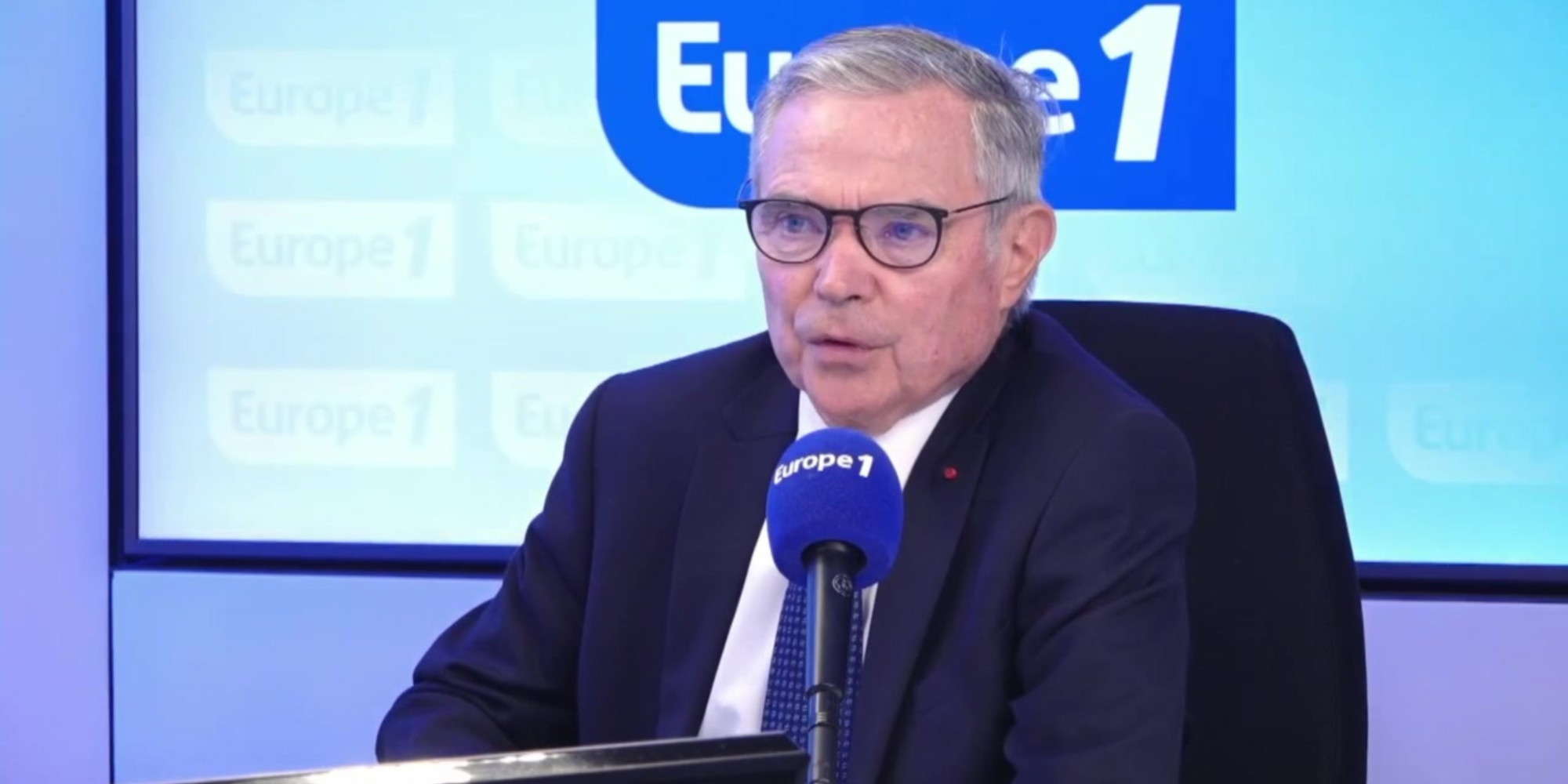Laura Laplaud with AFP 09:06, January 27, 2023, modified at 09:07, January 27, 2023
Guest of Lionel Gougelot at the microphone of Europe 1 on Friday, Bernard Accoyer, former president of the National Assembly and director of the NGO Heritage, Nuclear and Climate, returned to the situation of the nuclear fleet in France.
He welcomed the adoption at first reading in the Senate of the bill promoting the construction of new nuclear reactors.
The Senate adopted Tuesday at first reading, by 239 votes against 16, a bill promoting the construction of new nuclear reactors, supplemented by controversial provisions, such as the removal of the 50% cap on the share of nuclear power in the electricity mix. 'by 2035. A reassuring change of course for Bernard Accoyer, president of Patrimoine Nucléaire et Climat (PNC-France).
"We have come out of the utopia which consisted of following political ecology, which continues to prioritize the end of nuclear power over the fight against global warming, which obviously has no basis", he said. he declared at the microphone of Europe 1 on Friday.
For the former President of the National Assembly, "the European energy crisis and French electricity have accelerated the awareness" of the State and led to the announcement of "concrete decisions".
>> Find the 8:13 interview in replay and podcast here
France must give itself "a project that can bring the French together"
The text voted on Tuesday, which will be examined in March by the National Assembly, simplifies administrative procedures in order to promote the construction of new reactors.
President Emmanuel Macron has announced plans to build six new reactors, with an option for eight more.
Will this be to the detriment of nuclear safety?
"France is the most demanding country in the world in this regard. Security issues are not the problem. It's a problem of time and funding, but these difficulties must be overcome", decided Bernard Accoyer before to pursue.
“We can clearly see that the price of energy is at the root of everything. Household purchasing power but also the country's competitiveness, our ability to stop deindustrialization and reindustrialize the country. is an overall project. I even think, on a personal level, that this is one of the last chances that France must absolutely seize to give itself an objective, a voice, a project that can bring the French people together."
“Political ecology is an ideology”
A bill that obviously does not delight environmentalists who voted against Tuesday.
For their part, Greenpeace France and the Sortir dunuclear network announced in a joint press release "leaving the public debate" underway on future reactors, denouncing "a democratic masquerade".
A political resistance condemned by the president of Nuclear Heritage and Climate.
"Political ecology is an ideology. The anti-nuclear lobby is a complex lobby. It is a lobby where there are commercial interests, where there are foreign interests and it is a lobby that is very powerful, which has support which is unsuspected and which it would be interesting to investigate”, he said at the microphone of Europe 1.
"France's interest is to rely on what it has been able to do, what it knows how to do, because we still have, with the 220,000 jobs in the sector, with all our scientists, we still have an extraordinary tool there and it is an opportunity that we absolutely must not miss."
France, which derives around 70% of its electricity from nuclear power, decided in 2015 to close 14 of its 58 reactors, before a reversal announced by the President of the Republic in favor of a new nuclear power.

